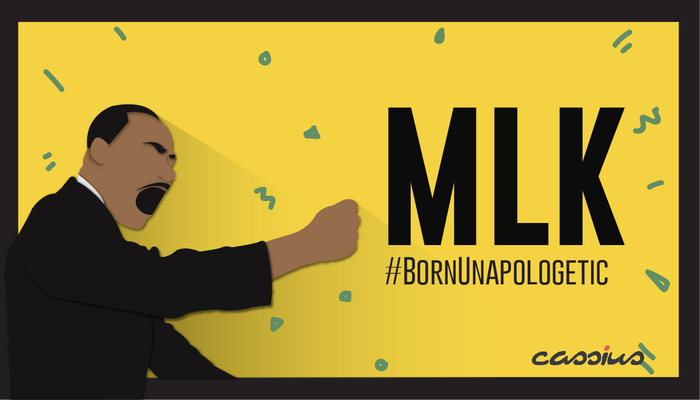
Source: iOneDigital / creative services
Poets are prophets. Sages who wield revelatory words. Words that can birth freedom. Words that create images culled from profound imaginations holding the keys, the insights, the people need to engage in beautiful struggle.
Poets. Their fractured lines, movements of thought and their breaks in breath, are “there to articulate the necessity,” as James Baldwin opined.
Poets. These artists are here to offer the people types of truth that, as Baldwin also warned, “[t]he people usually know…after the poet is dead.”
But CASSIUS refuses to wait to hear, if we can, the poets’ words only after they are no longer here. So on this day, as we reflect on and celebrate the life and legacy of the Rev. Dr. Martin Luther King, Jr. across the U.S., we turn to five Black poets—Rickey Laurentiis, Paula Ramirez, Phillip B. Williams, Mecca Jamilah Sullivan and Alexis Pauline Gumbs— who help us reflect on what it might mean to expand King’s dream. Join us. #ExpandTheDream #MLK50
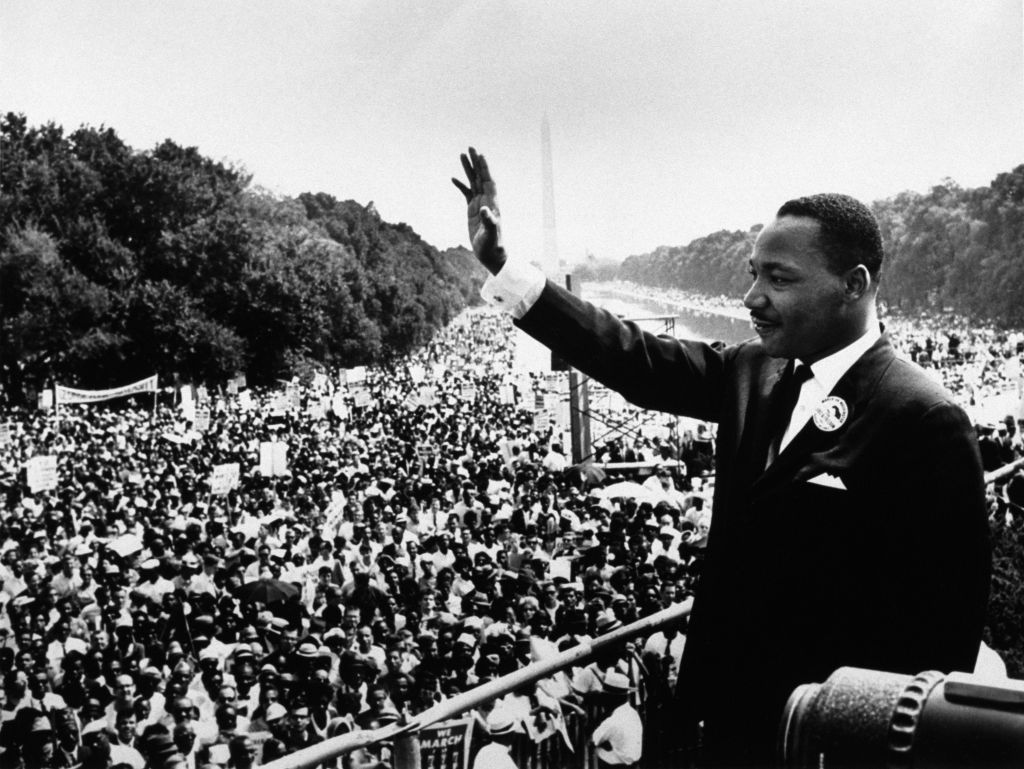
Source: GAMMA / Getty
Rickey Laurentiis
Lyric
Red or redder than, uterine even, a dream, meaning / done
Hooked inside, pealing, the usual hanged-down blood / as if
Could be an essay in him, better said, in her, as if / a good rhetoric
They not so much hold dominion over but precedence; / or is it
Silence becoming a more perfect speech, not a union, what is / the dream
But a stupid, all-forgiving heart, telling, bleating, I think / the problem
Of this century is still the color line since the problem is / simply / the line.
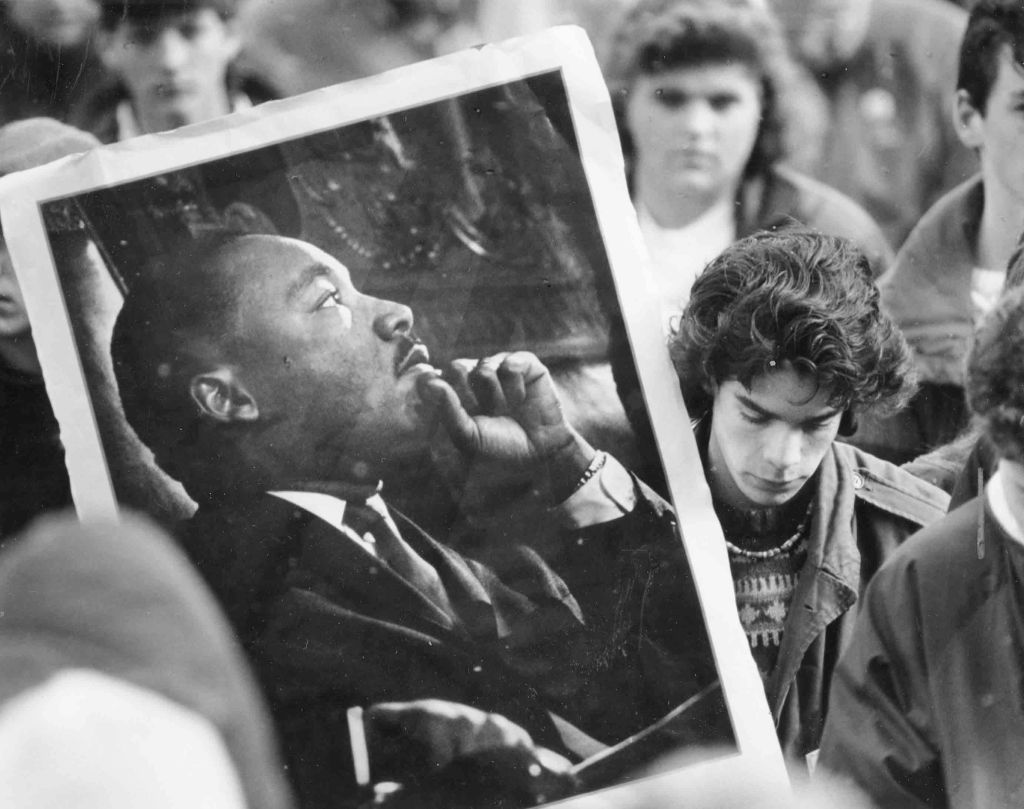
Boston Globe
Paula Ramirez
Untitled
I want to see more pictures of Dr. King crying.
Weeping blood-soaked tears like
Titi Marie the day they found my cousin Chris on the train tracks.
His cry must have been quiet and calm like storm rain
or lightening showers.
He could’ve fit right in.
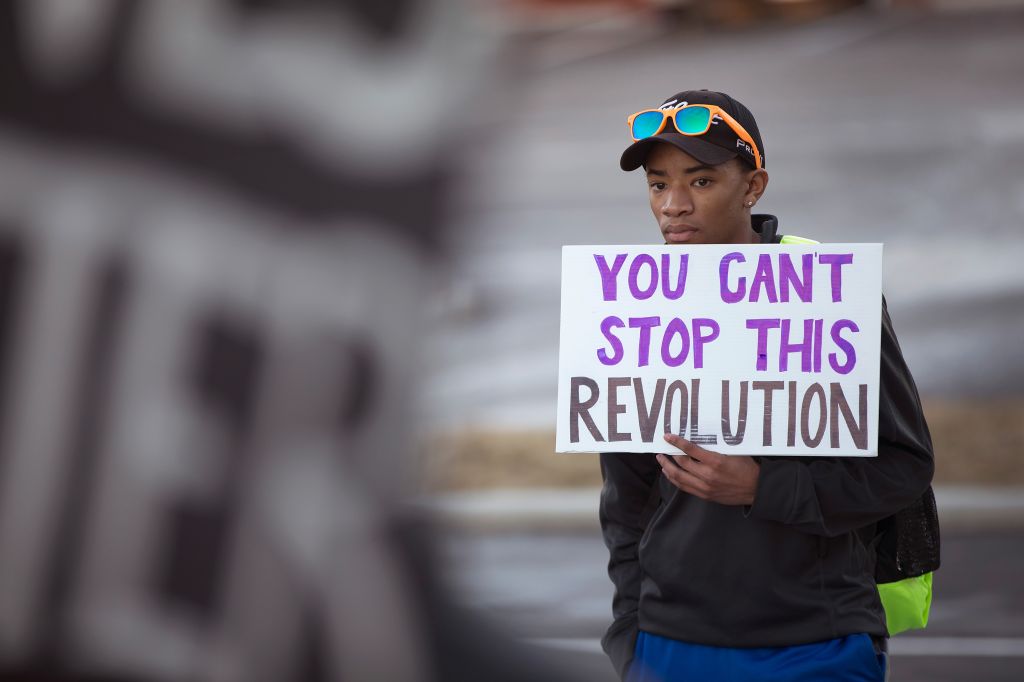
Source: Scott Olson / Getty
Phillip B. Williams
On “I Stay Woke”
But it began with a dream, a restless imagination
shocked into precision on a bed of rope and fire-
hoses. It began, then, in sweat made to abandon
all fear. We began from giving, a generosity of hands.
Self-purification: Stand. It begins, then, with fire.
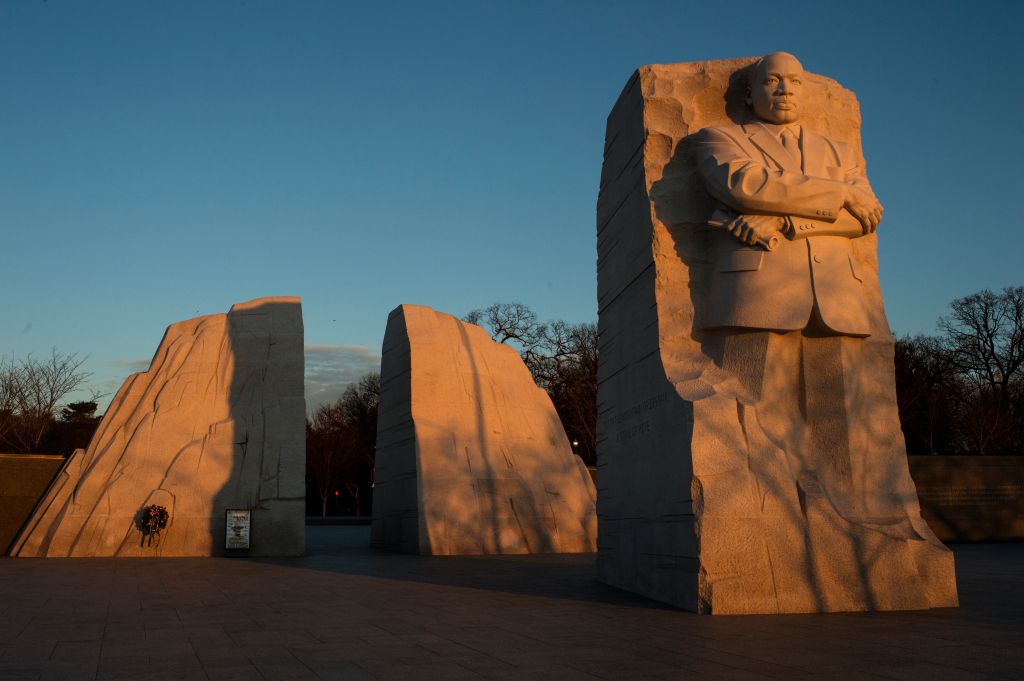
Source: The Washington Post / Getty
Mecca Jamilah Sullivan
Bodiness (on the State of Dreaming)
“When you are forever fighting a degenerating sense of “nobodiness”—then you will understand why we find it difficult to wait.”
—MLK, “Letter from Birmingham Jail”
Some dreams are fever dreams:
Hot and syncopated rush,
Pitch of color and muscle, body,
Breath swallowed, inflamed.
My dreams are fever dreams these days:
Limbs splayed, teeth bared
Like paper against nobodiness,
Stacked, inked, edged sharp.
Our dreams are fever dreams today:
Die-in resurrections, unbreathing exhortations
All bleat and burn, all body. Somebody
Refusing to wait.
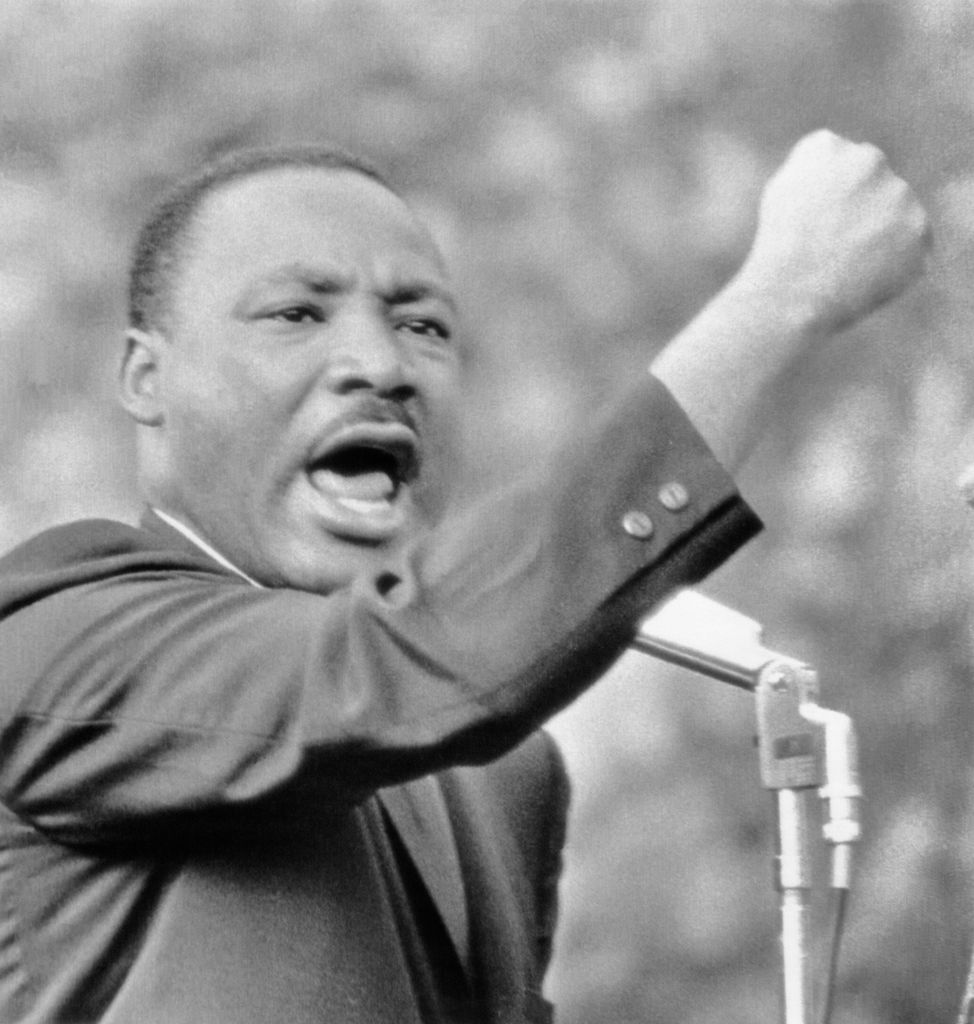
Source: Bettmann / Getty
Alexis Pauline Gumbs
Expanding The Dream
Harriet Tubman had a dream one night where she saw all of us free. And the next day she couldn’t stop saying it: “My people are free.” In the present tense. Months later she went down to the Combahee River to start working for a year on the largest most successful uprising of enslaved people in U.S. history.
Martin Luther King Jr. would call Mahalia Jackson in the night so her voice could heal his anxious heart. And he told her about a dream he had. Mahalia urged him to make it public, “Martin, tell them about the dream.” Martin Luther King Jr. said, “I have a dream.” In the present tense.
Audre Lorde said there were things that she wrote that she could not have imagined, except that they came to her in dreams or poems. When she wrote in her journal about one of the dreams she said, “I love the idea that I am everyone in this dream.”
Is it the same dream? What if there is only one dream and we are dreamers and dreamt, populating each others’ imaginations? Exceeding description except in poems. What if the dream Mahalia told Martin to tell us, the dream Harriet had where she saw us all free, and each dream carefully documented by Audre and her poetry students is an angle on one dream with generations of witnesses? Are we willing to be that connected in the dark?
What if our capacity to dream, or even more, our capacity to be in the dream is where our visionary aspirational freedom impulse, meets the end of individuality, the darkness of unknowability, the end of ourselves in each other?
Maybe the dream is expansive. And like the expansive and expanding universe, it is made mostly of darkness, mostly of energy that we cannot pinpoint, like light. We are made of stars that have already exploded. But I look for you in the present tense. I look for you with my heart like you could be anyone and I am everyone. Every dream is a dream of us. Blacker than we thought was possible. Unknown even to ourselves.
I only dream of you. I only dream of us. That’s not the hard part. The hard part is not forgetting in the morning. The challenge is to show up and show up again, as your deepest darkest dream. Asking for the you you can’t imagine, open to the me I could not see. Dreaming is no clean predictable thing. The subconscious (what Audre Lorde called the “non-European consciousness”) is here to undo me and you and make us possible again and strange, with hardly any names for each other.
The hard part is the showing up to tell you. Knowing that what I know is less than what we all forgot. The hard part is practicing in the light, what can only be learned in the dark. The wild thing is showing up for this moment with all of history on our minds, with unresolved trauma in our hearts, and with the future in our hands.
I have a dream today. Let’s call it a promise.
I will keep showing up. I will attend to the possibility of us even when it scares me. I will stay in the dream. I am here by whatever name you call on me.
Present.
















